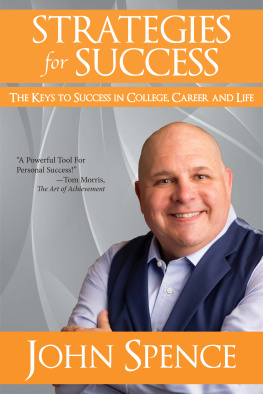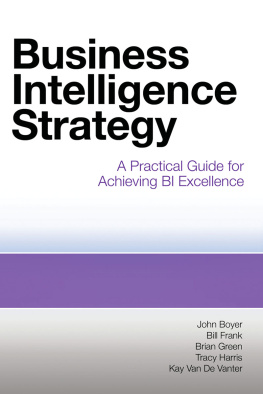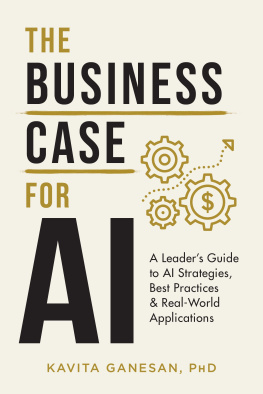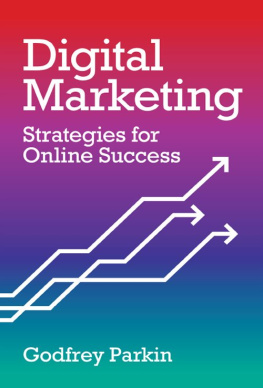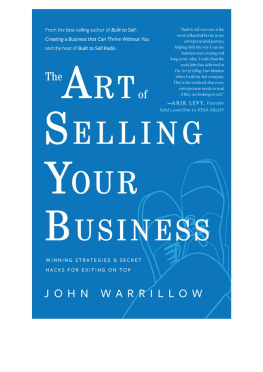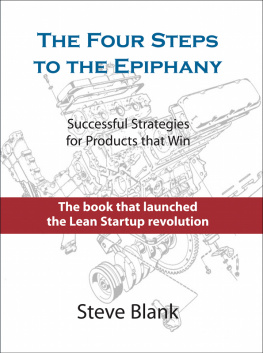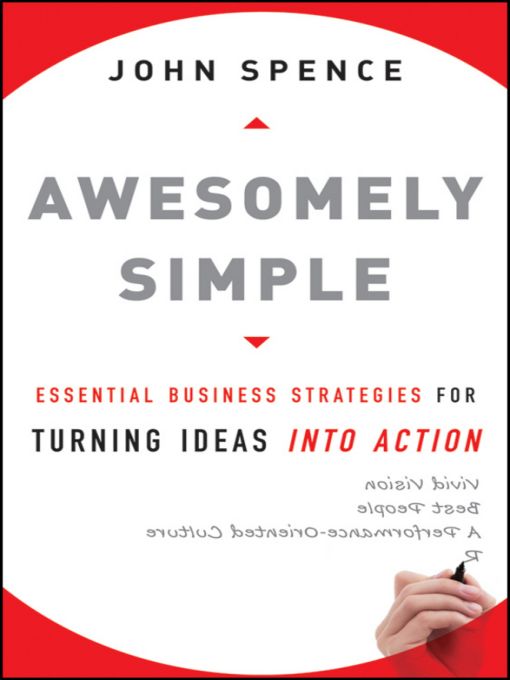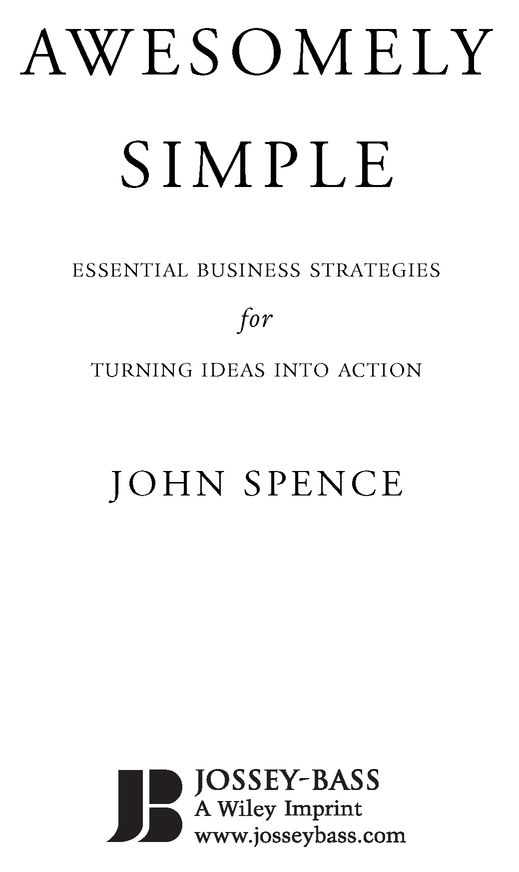Table of Contents
Praise forAwesomely Simple
John Spence understands business. Lucky for us, he wants to share his passion for success. Awesomely Simple is honest, sincere, and written with a commitment to discovering how business can work more effectively, productively, and profitably. We all get caught up in things that dont matter. John clears the clutter, and then wonderfully illustrates what is truly important to build success in business.
Joel Zeff, national speaker and author, Make the Right Choice
Uncertain times require us to reconnect with the fundamentals. John Spence knows these fundamentals as well as anyone, and his direct and simple stylesupported with real-world examples and applicationsmakes it easy for anyone to understand and implement. There has never been a more important time to revisit the themes in this great book.
Peter Sheahan, author, Flip and Generation Y
Are you looking for the keys to business success? John Spences new book helps you to find them! John truly makes the very complex awesomely simple and shows you exactly how to turn your ideas into a perfect winning strategy!
Stefan Gubi, president, AKG Acoustics, Vienna, Austria
What we love about John is his ability to take the complex business and financial services world we live in and make it easy for all of us to understand. Awesomely Simple will help everyone make goal setting, strategy, and vision more focused on relationships and people.
Randy Schleeter, agency field executive, State Farm Insurance and Financial Services
To my amazing wife, Sheila. You are my best friend, my business partner, my life partner, my everythingforever.
Introduction
I am totally addicted to business. I have had a two-business-books-a-week habit for nearly twenty years now. I cant help myself: I love studying business, I love running businesses, and I love working with employees and customers. To me, it is all a huge, fun, exciting gamea game, I might add, that if played well, can make you a lot of money. My greatest joy, though, comes from teaching businesspeople how to run their companies better. I realized a few years ago that most businesspeople are so busy working in their companies that they do not take any time to work on their companies. Frankly that scares me, because I know that if a businessperson is not taking serious time to study, learn, think, strategize, and innovate, pretty soon he or she will be forced to take some time to learn about something else: bankruptcy.
But in todays crazy-fast business world, who has time to read the top four hundred or five hundred business books and spend countless hours poring over thousands of pages of research findings to figure out what they all mean? How many business managers, directors, and owners have direct access to dozens of the top business leaders in America and can reach out to them for help and advice? How many businesspeople get the chance to crawl around in literally hundreds of other companies to watch what they do right and what they do wrong so they can apply those ideas in their own company? Well, I do.
For the past fifteen years, I have traveled around the world to work with every type of company from tiny mom-and-pops, tech start-ups, local governments, and nonprofits to global firms like Microsoft, Abbott Labs, State Farm, IBM, and GE. Most of these projects have been multiyear engagements in which I have had the opportunity to work shoulder-to-shoulder on critical projects with some of the best and worst businesspeople imaginable. I have spent years looking for the pattern of what differentiates great companies from great failures. What I have learned is that business is much less complex than I thought. Whether you have two people on the payroll or twenty-two thousand, the truth is that building a great company rests on just a few fundamental principles that are not complex or confusing in any way. Actually, as youll soon find out, they are quite simple. My goal in writing this book, and in fact, one of the driving forces of my life, is to make the very complex awesomely simple. I want to give you the benefit of my twenty-plus years of high-level business experience in the pages that follow. My goal is to help you understand what it truly takes to build and sustain a successful company. And I will do this not just from my point of view, but from a synthesis of the best practices and key strategies of the leading companies in the world. We will look at numerous examples of how small and big companies, from high-tech to high-touch, climbed to the top of their industries. Everything you will read in this book is from real life: youll find no fluff, no grand theories, no intellectual backflips. I want to make closing the gap between knowing something and actually doing it (what I refer to in this book as the knowing-doing gap) as easy as possible for you by giving you clear and straightforward advice about how to make any business run much, much better. As youll see, it is not nearly as complicated as most people think it is. The real challenge, and the foundation for lasting business success, is the consistent and disciplined application of just six principles, day in and day out, in every part of your organization:
The Six Principles of Business Success
1. Vivid vision
2. Best people
3. Robust communication
4. Sense of urgency
5. Disciplined execution
6. Extreme customer focus
Every successful organization I have ever worked with, regardless of size, geography, or industry, understood that these six principles form the bedrock of their success and focused on them relentlessly. On the flip side, when I am called in to save a struggling company that stands on the brink of failure, it is usually because they are not doing one or more of these six key things effectively.
On the surface, these six principles may seem very simple, and for the most part they are. But simple in no way means easy to implement. Tiger Woods makes playing golf look very simple, but there is nothing easy about what it took for him to get to that level of expertise. Recently I read The Cambridge Handbook of Expertise and Expert Performance in which the worlds foremost experts on expertise reviewed all of the latest scientific research on how experts develop their superior skills. I wont drag you through all 901 pages of scientific findings. Basically what I felt the book said is that it takes four things to become an expert at anythingwhat I call the four Ps:

Passion. You have to love your area of focus. It needs to be an all-encompassing, driving force in your life if you ever hope to attain any level of real expertise in it.
Persistence. According to the Cambridge Handbook, there is a phenomenon called the ten-year rule. Nearly every expert studied had spent a minimum of seven to ten years (roughly 100,000 hours) working diligently at gaining skills and knowledge in an area of expertise. Even child prodigies like Mozart began their studies at a very early age, so by the time they reached adolescence, they had satisfied the ten-year rule. (Tiger started playing golf when he was only three.)


